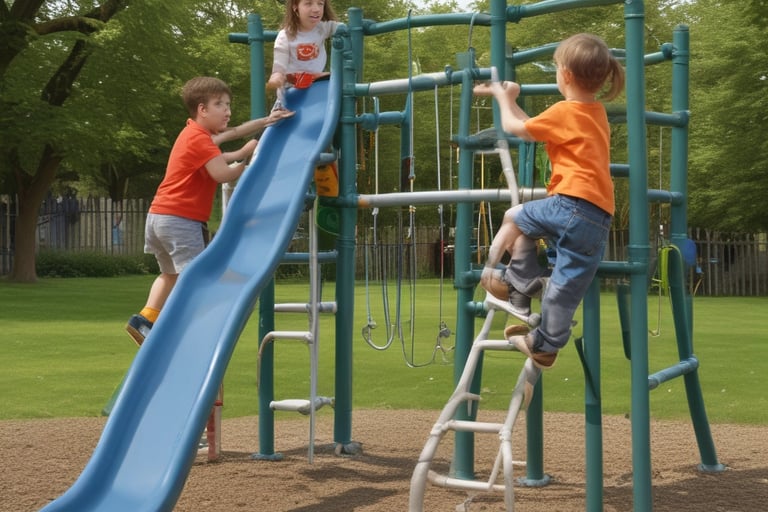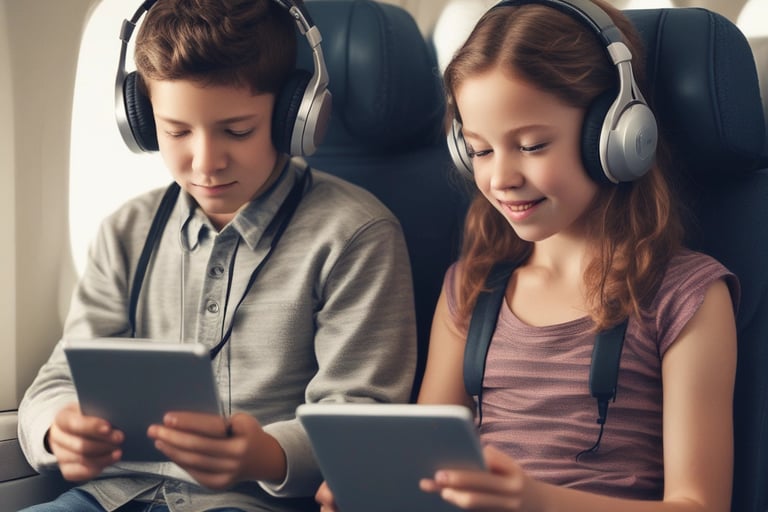Preparing Siblings for Neurodiverse Family Travel: A Parent’s Guide
Learn how to prepare siblings for traveling with a neurodiverse family member. Get tips on managing sensory overload, autism, and have a great time.
TIPS AND STRATERGIES


Family holidays are usually portrayed as a blissful escape from everyday drags, but when it comes to families that deal with neurodiversity, there is a whole new planning that comes into the equation.
In case one of the children is neurodivergent, it is not about the flight reservation or identifying the most interesting places to visit, but it is about organizing an experience in which the needs of everyone are considered, particularly when the neurotypical siblings are involved.
It is not only considerate to prepare the siblings about a trip in which a neurodiverse family member is going to be the focus, but it is necessary as well. It aids in developing empathy, expectations management, and will result in ensuring that each family member feels enclosed, comprehended, and cared for.
This guide will help prepare your neurotypical kids to enjoy and deal with the difficulties of traveling with a neurodivergent brother or sister.
1. Start with Open, Age-Appropriate Conversations
Neurodiverse children always have younger siblings who are unusually empathetic, but they require some guidance on the underlying reason for this.
Prior to the trip, tell them simply and frankly that their sibling might be experiencing the world beyond the level of their experience. Examples should be applied to your kid with particular neurodivergent symptoms, including troubles with loud sounds, bright light, or transitions.
For example: "You might notice your brother putting on his headphones at the airport. This is because he feels sounds more than we do. It keeps him relaxed."
Make it normal. Point out that no one is better or worse than the other; we all have our strengths and weaknesses, and we simply deal with them differently.
Putting this discussion into the framework of the whole types of neurodiversity, such as autism, ADHD, or sensory processing disorder, will assist children in gaining language and awareness that will be utilized throughout their lifetime.
2. Define Roles and Set Expectations
Children respond well to order. Have everyone understand and recognize the plan and their role.
Will the neurotypical sibling need to do anything, such as carry a bag or provide comfort?
What actions can they anticipate their neurodivergent symptomatic sibling to have when traveling?
Making them play some part in planning minor items of the trip makes them feel involved.
You might say, "We’re choosing a hotel that’s one of the top autism friendly all inclusive resorts because it has quiet spots and employees who know how to deal with children like your sister. You want to help me choose a room that we should stay in?"
Such participation leads to team spirit and working together.
3. Introduce the Concept of Sensory Overload
Sensory overload autism is one of the most important concepts to share with neurotypical siblings. Tell them that jarring sounds, excessive smell, or crowded places may overwhelm their sibling.
Build a sensorial activities list together with calming strategies that both siblings can use. These might include:
Deep breathing games
Fidget toys
Noise-cancelling headphones
A visual schedule or quiet time book
Not only does this prepare the neurodiverse child, but it also teaches the neurotypical sibling useful emotional regulation tools.
4. Choose Travel Plans that Respect Everyone’s Needs
Planning trips that support the neurodivergent child doesn’t mean sacrificing joy for the rest of the family — in fact, the opposite is often true.
There are numerous destinations now that accommodate autism friendly vacations or autism friendly holidays Europe, which can be enjoyed by travelers. These trips sometimes have routine schedules, quiet spaces, safe spaces, and trained personnel- a win-win situation.
Consider lodgings that would be in line with your child's current educational environment, should they be in a school where accommodations have been made.
Even destinations start creating environments akin to accommodations of neurodivergent students, including visual gestures, stimulus reduction, and repetitive schedules.
5. Create Sibling Time
The family members may obviously be preoccupied with the task of raising a neurodiverse child, but it is important not to neglect the emotional needs of the other children.
When you are on vacation, you need to have time to spend with the neurotypical sibling only, be it a walk at the beach, a game night, or even a day out alone with a parent.
Such occasions not only make them feel appreciated but also establish a balance. Even though they are told that their feelings are of equal care, his or her sibling may require more attention.
6. Foster Empathy Through Storytelling
Neurodiverse characters in books, shows, and podcasts can be effective in filling the gap in knowledge.
Come to think of a pre-trip film get together with something like Pixar Loop or reading materials like My Brother Charlie by Holly Robinson Peete.
The stories can partially assist neurotypical siblings in perceiving neurodiversity in a caring way, and it is possible to note that their journeys are not unique or weird.
7. Be Realistic About Triggers — and Recovery
Neurodiverse characters in books, shows, and podcasts can be effective in filling the gap in knowledge.
Come to think of a pre-trip film get together with something like Pixar Loop or reading materials like My Brother Charlie by Holly Robinson Peete. The stories can partially assist neurotypical siblings in perceiving neurodiversity in a caring way, and it is possible to note that their journeys are not unique or weird.
Let them know: "There is nothing wrong with your brother, who does not cope well. It does not imply that we are doing something wrong; his brain is just taking a bit of time to feel better."
And in case one of the big activities must be quit, breathe and think: the malleable, compassionate mind is a master instructor of resilience more than any amusement park can ever be.
8. Don't Forget Self-Care for the Whole Family
Flying with a neurodiverse child needs staff work, vision, and persistence. That is why Self-care for parents is not an option.
Model it. Let your kids see you take breaks, hydrate, and ask for help. These aren't indulgences — they're survival strategies.
Take the trip as an opportunity to employ family self-care during the times that you spend alone: a quiet breakfast on the balcony, writing, exchanging child-watching roles to ensure every adult takes time for themselves.
Even though they are told that their feelings are of equal care, his or her sibling may require more
9.Celebrate the Strengths of Your Unique Family
Let your kids see you take breaks, hydrate, and ask for help. These aren't indulgences — they're survival strategies.
The destination is not a flawless holiday, but a linked one at the end of the day.
Celebrate the small wins: a successful airplane ride, a shared laugh at dinner, a moment of stillness during a walk. These are the memories that shape family bonds.
Final Thoughts
Having a neurodiverse family member often brings out remarkable traits in siblings — patience, compassion, and problem-solving.
With honest communication, thoughtful planning, and a whole lot of grace, your vacation can be a joyful chapter in your family's story — one that nurtures both neurodivergent and neurotypical children alike.
In this journey, perfection isn't the goal. Presence is. And when every family member is seen, heard, and valued, that’s when true adventure begins.











